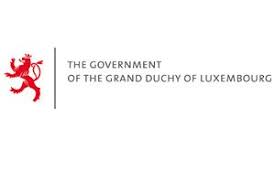The PEFA Framework plays a critical role in helping to ensure that PFM systems are equipped to Build Back Better – that scarce public funds effectively contribute to sustainable, more equitable, and greener recovery from COVID-19 – that financing is efficiently targeted and achieves effective results.
See a blogpost Public Financial Management in the Post-COVID World about the role PEFA can play in addressing the challenges going forward. See also a blogpost Using PEFA Reports to assess readiness of PFM systems to respond to Covid-19 challenge.
Today, over 650 PEFA assessments have been completed in 153 countries around the world to assess the strengths and weaknesses of PFM systems. This pace has continued during the COVID-19 pandemic when a total of 30 assessment reports have been produced in 2020 alone. Current trends indicate a large number of new assessments being initiated in 2021. The experience from 2020 demonstrates that the assessments can still be delivered effectively, with good quality.
Managing successful PEFA assessments – when the going gets tough
During the pandemic, PEFA assessments have been conducted mostly remotely. What does this mean in practice? The PEFA assessment teams have shared some of their initial experiences on how to deliver a robust assessment even during challenging times when data collection and verification must be done in a virtual format.
1. Have a clear plan…that you can change!
Having a clear purpose, plan, and communication for the assessment process are always important – but this is particularly the case to keep up the momentum when governments are facing different & competing pressures. But at the same time, it is even more important to be flexible in your approach - monitoring progress and having a fallback plan option always helps, including when COVID-19 related restrictions may change quickly.
- Timelines need to be flexible – A standard PEFA assessment timeframe from an early discussion to reporting is up to 10 months. During COVID-19, the overall timeframes could in some cases be longer than in normal circumstances although the total amount of days needed may remain similar. It will be helpful to ensure all key players and contributors are adapting to evolving developments to manage the work within reasonable timelines. This is all the more important as Governments look forward to using PEFA findings to help reconfigure their post-COVID PFM reform strategies when countries start to emerge out of the pandemic.
- Data should be requested early –Securing robust data to evidence the assessment can sometimes require time and effort, particularly during a crisis. Request the data as early as possible, be clear on what you need and why, and aim to have it ready before you discuss the evidence with government officials. Ensure that all officials understand the kind of information you need: virtual training on the PEFA assessment framework is strongly recommended. Any confidential documents may still need to be discussed with in-country staff in person.
2. Get to know the local - through the in-country experts
- In-country team members play a critical role – The most challenging aspect of not being able to work on the ground is not to be able to build critical relationships. This can be partly compensated by informal, frequent virtual discussions. But in-country assessment team members (such as government officials, the in-country staff of development partners, or local consultants) that understand the country’s policy, institutional, and PFM context will play even a bigger role during the pandemic than normally. They may be able to meet officials in person, be able to read the official documents in a local language and be helpful in facilitating access to information.
3. Don’t forget the obvious in virtual assessments…

Virtual discussions need to be snappy and well-planned
Plan for shorter, well- structured, and well-prepared virtual meetings – that are likely to take place over a longer period than the usual two or three weeks in a normal field mission. You are likely to have more flexibility for meetings – but also need to make the discussions lively to keep people engaged. Translation of documents as well as simultaneous translation with local officials can be necessary.
- Focus the online training on team’s key needs - PEFA Secretariat’s virtual training on the PEFA methodology and the PEFA assessment process usually takes place over 2-3 days for 2-3 hours at a time. This can be tailored to different needs but is generally much shorter than the usual training in person. Self-learning by assessors and information providers is important, and follow-up on any remaining questions after the virtual training will be helpful.
- Good internet connection is essential – Double-check that everyone has the necessary internet infrastructure and is familiar with virtual meeting platforms. If needed, organize a separate training and a trial run to test the platform's suitability.
- Cost savings are possible - costs related to travel, hotels, or facilities for meetings will be reduced - some of these could be used to strengthen up local team capacity, for example, to hire additional local consultants.
Do you have experience in doing a PEFA assessment during COVID?
Share your experience through PEFA Stories on PEFA Website. We will be glad to support you.
-----------------
PEFA Secretariat offers support to Governments and teams undertaking PEFA assessments, for example:
- Virtual PEFA assessment training & Quality Assurance through PEFA Check
- PEFA assessment e-learning modules 1- 4 to be launched online by the second quarter of 2021 (in English only in the first phase).
- Updated PEFA website includes guidance documents, templates, and case studies – where you can also publicize your PEFA events and assessments www.pefa.org
- Contact PEFA Secretariat for any clarifications / support at services@pefa.org
This article is compiled by Tia Elise Raappana and Helena Ramos with other members of PEFA Secretariat.





